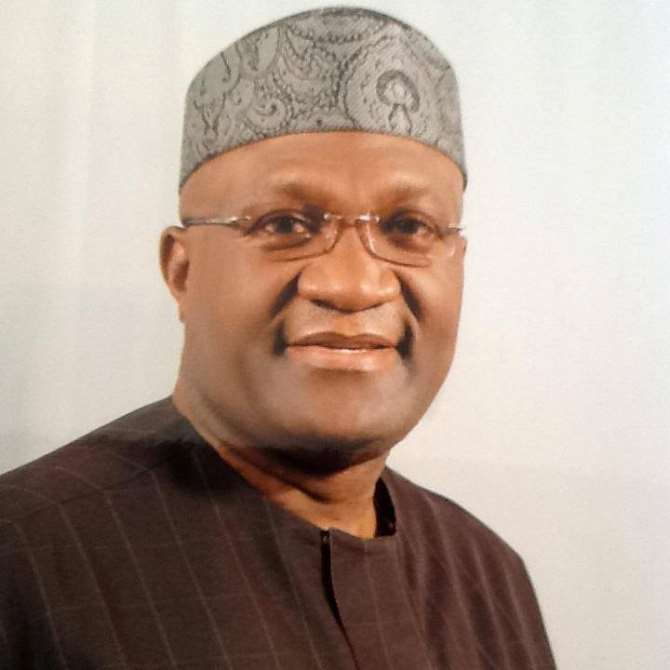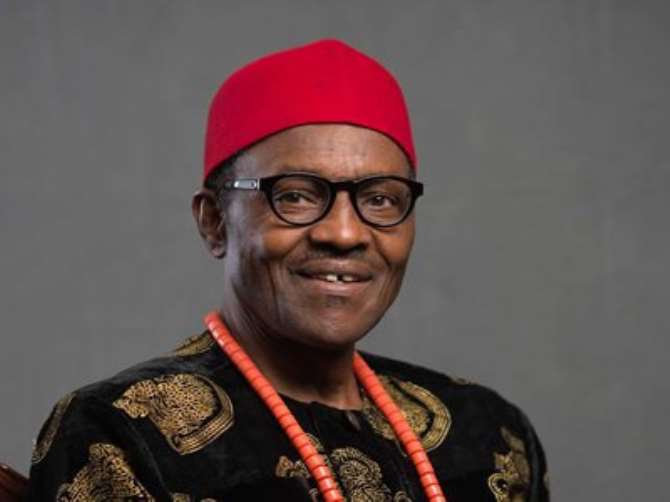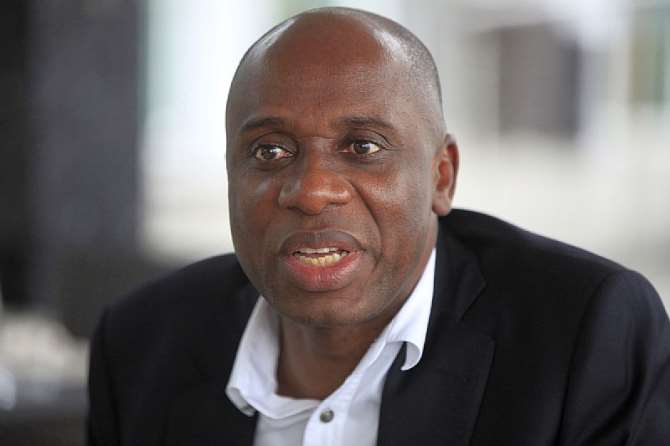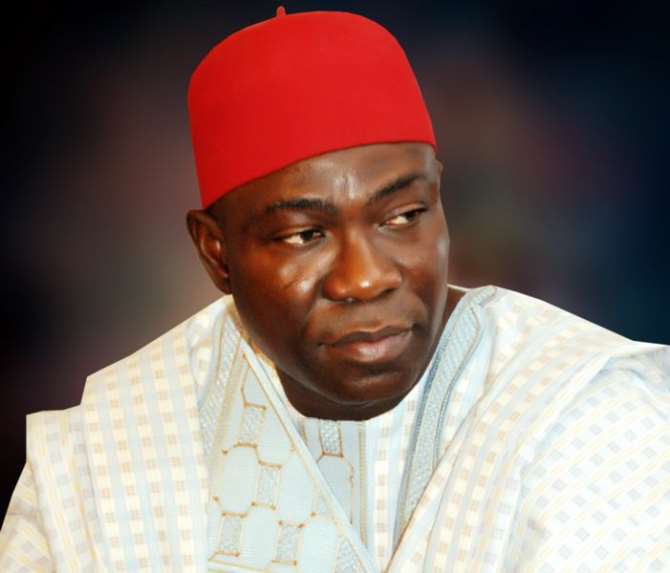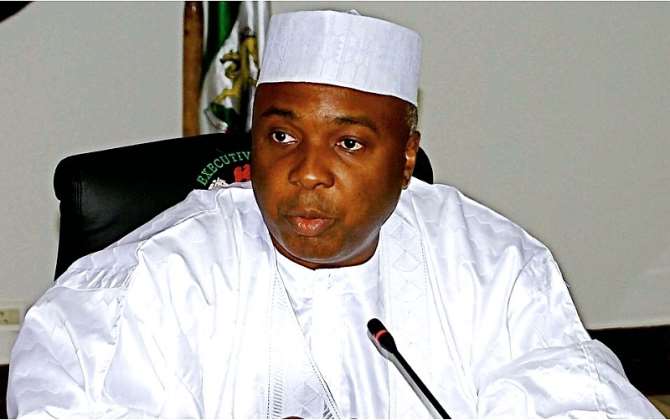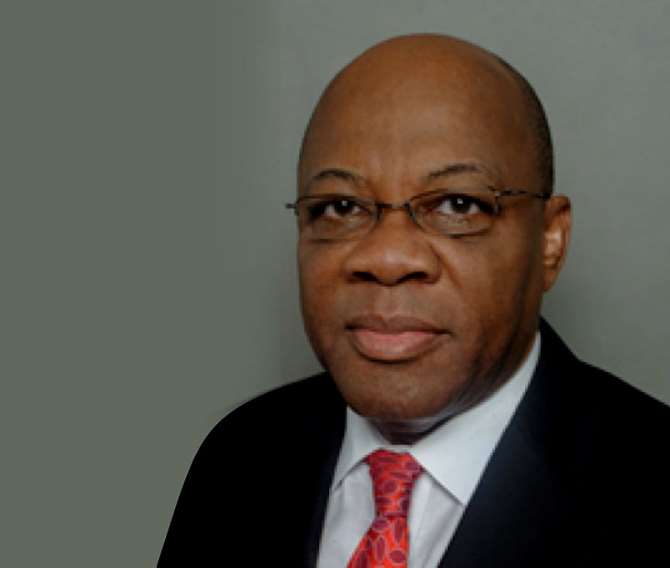South East: Cries of A Neglected Zone?
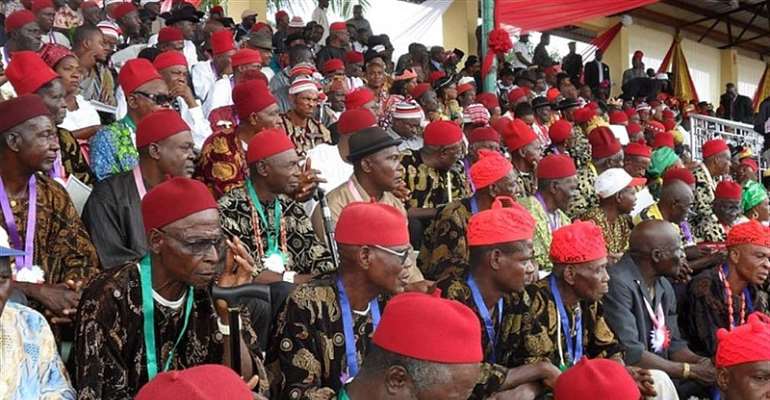
Fifty years ago Nigeria was plunged into a civil war because of the alleged dehumanisation of South East region. In today’s Nigeria the charges are still there thereby giving rise to separatists organisation and calls for restructuring which seem to fall on deaf ears of the federal government as it continues to exclude them from developmental projects which other regions enjoy in the country
FOR now, President Muhammadu Buhari’s request for the National Assembly’s approval of a $5.815 billion loan from the China Exim Bank to modernise Lagos-Kano, Kano-Kaduna, Lagos-Ibadan and Lagos-Calabar rail lines, appears to be unpopular with some legislators, especially those from the South East. This followed a motion raised by Enyinnaya Abaribe, a senator from Abia South, alleging that the South East was been excluded from rail project for the entire country. Hence, the Senate, on Tuesday, May 16, resolved to invite Chibuike Rotimi Amaechi, minister of Transportation, to explain why the South East corridor rail line was omitted in the areas covered by the proposed loan.
The lawmaker, in his submission recalled that the federal government, on April 26, laid a request seeking an approval for the loan before the National Assembly to execute the modernisation of Lagos-Kano, Kano-Kaduna, Lagos-Ibadan and Lagos-Calabar rail segments.
Abaribe, however, said: “The Senate observes with dismay that the above sections of the rail line that the loan was being sought for covers only a section of the country i.e. the western corridor. The Senate notes that the eastern section of the rail segment, which has a link between the South Eastern to North Eastern parts of the rail line, is completely excluded from the request. The Senate further notes that the loan, being a federal government borrowing, would be repaid by all sections of the country; therefore, every section of the country should be taken into consideration.”
The lawmaker, in the prayers of the motion, urged the Senate to suspend consideration of the loan request until the correction of the omission of the Eastern parts of the country. He also called on the Senate to “invite the minister of Transport to appear and explain the reasons for the exclusion of the eastern corridor of Nigeria’s rail lines from the proposed loan from China Exim Bank.”
Abaribe, however, withdrew the first prayer, while the second prayer was unanimously granted by the lawmakers.
Seconding the motion, Ike Ekweremadu, the deputy president of the Senate, said the Senate belonged to all parts of the country and ‘the implication, therefore, is that any wrong done to any part of this country is a wrong to all of us. He said: “I am aware that the federal government is committed to rehabilitating and upgrading the railway infrastructure in Nigeria since (the days of President Olusegun) Obasanjo’s administration. Regrettably, from the inception of that programme, the federal government has an attitude about the Eastern line of this country – that the line is not profitable – and emphasis has not being placed in fixing that axis.”
But Gbenga Ashafa, a senator from Lagos-East, faulted the motion as lacking adequate information. He said: “I will say it is inadequate and I will also add that it is inaccurate in the sense that when the President Muhammadu Buhari-led government came in, the idea of providing rail infrastructure as approved initially – from Lagos to Calabar and Lagos to Kano – took into cognisance Aba and Onitsha.
“The Lagos-Kano and Calabar-Lagos railway project covers all the geopolitical zones, and I will show you how. On the Lagos-Calabar coastal space, you will find the rail cutting across the Obudu Cattle Ranch, Calabar, Uyo, Aba, Port Harcourt, Yenagoa, Otuoke, Ughelli, Sapele, Benin, Agbor, Asaba and Onitsha. Connecting Benin is Ijebu Ode, Ore, Shagamu and Lagos seaports. Until it is finished, you can deduce from this that two major states in the South-East where Senator Abaribe comes from have been covered. Until this is finished, you can’t see it on the ground. When we are making our points, don’t let us bring up ethnic sentiments.”
In his ruling, Bukola Saraki, Senate president, said the leadership was already looking into the matter, adding that it would be important for every part of the country to have standard gauge lines.
The upper legislative chamber went on to adopt the motion after it was put to a voice vote by Saraki, who presided over the session.
Perhaps, to clear the air on the controversy, the federal government on Thursday, May 17, denied the exclusion of the South East from the ongoing rail projects. According to a statement by Yetunde Sonaike, director of Press at the ministry of transport, the federal government also noted that its major rail projects are; Lagos to Calabar and Lagos to Kano.
The Lagos – Calabar will traverse Lagos-Shagamu-Ore-Benin City-Sapele-Warri-Yenegoa with siding to Otuoke-Port Harcourt-Aba-Uyo-calabar and branch line from Benin City-Abudu-Onitsha including Onitsha rail bridge.
The Lagos – Kano rail Project will traverse Lagos-Abeokuta-Ibadan-Oshogbo-Ilorin-Jebba-Minna-Kaduna-Zaria-Kano with branch line from Minna-Abuja and Abuja-Kaduna.
The ministry also stated that the China Exim Bank loan would be used to fund three segments from the rail project, thus: “Lagos-Ibadan: Lagos-Abeokuta-Ibadan with extension to Apapa Port Complex (Segment 2 of Lagos – Kano), Kano-Kaduna (Segment 3A of Lagos – Kano) and Calabar – Port Harcourt: Port Harcourt-Aba-Uyo-Calabar with extension to Onne Deep Sea Port (Segment 1 of the Coastal rail Line). “From the foregoing, it can be deduced that the federal government rail projects touches (sic) various sections of the country and, therefore, no section is or will be left out…”
Whatever impression that the Abaribe submission must have created, he is not alone with such understanding and sense of deprivation.
Actually, the Ohanaeze Ndigbo had made a similar observation in a statement on May 9. Nnia Nwodo, president general of the cultural organisation, who spoke against the backdrop of the President Buhari’s letter to the National Assembly, seeking its approval for the $5. 815 billion loan from China’s Exim Bank, viewed the president’s letter as a reminder and extension of the political marginalisation of the Igbo people of the South East. He charged: “The major railway projects by the Federal Government are the Lagos-Ibadan-Kano modernisation (standard gauge) rail line and the Lagos- Ibadan segment is already ongoing at the cost of $1.231 billion.
“The Lagos- Kano modernisation rail project, has the Kano-Kaduna segment alone costing $1.146 billion while the Lagos-Calabar standard coastal line will gulp $3.474 billion. The mention in the said letter that the next set of rail development would take care of the South East is not worth a pinch of salt and, therefore, unacceptable to Ndigbo. The exclusion of the South East is in clear breach of the Federal Character Principle as captured in Section 14 (3) of the 1999 Constitution which provides that the conduct of the affairs of the Federal Government shall be carried out in such a manner as to reflect the character of Nigeria and the need to promote national unity and also to command national loyalty.
“Importantly, these railway projects are all funded by loans payable by every part of Nigeria. At this rate, therefore, the present and future generations of Ndigbo will end up paying for loans they did not benefit from. Although a N64 billion contract was awarded to Chinese firm in 2011 for the rehabilitation of the Eastern Rail Line, it is still the old gauge, not a modern/standard gauge and not making any reasonable progress.
“Besides, only a concession for the provision of goods coaches to run on the rehabilitated old gauge was given to General Electric, GE, and there is no plan for standard gauge or passenger traffic on this line. Ohanaeze Ndigbo wishes to call the attention of the Federal Government and members of the National Assembly to this large scale injustice, as these actions fuel restiveness and quests for independent sovereign states in parts of the country. “We call on the lawmakers, leaders and civil society from this region to mobilise their colleagues and compatriots who believe in the unity and equitable development of the country to vote against this injustice.”
That notwithstanding, for justice to be done and seen to be done, Olisa Agbakoba, SAN, and human rights activist, believes that the dispensation of justice could only be achieved through the instrumentality of the court of law. Agbakoba whose grouse against marginalisation of the South East beyond the rail projects has thus, approached the court to enforce the fundamental rights of the people of the zone instead of joining forces with pressure groups that have been agitating that the zone should allowed to go its separate way.
Just last month, Agbakoba filed a fundamental rights class action against the Federal Republic of Nigeria for himself and on behalf of the South East Zone recently on grounds of discrimination citing Section 42 of the 1999 Constitution. In the suit, the lawyer is also demanding the sum of N1,000,000,000,000 (One Trillion Naira) from the federal government to be shared among the five states of the South-East geopolitical zone, as damages for what they have suffered as a result of the discriminatory acts against the zone.
The activist filed an originating summons supported by an affidavit of 99 paragraphs and a statement, saying the grounds of his application included total neglect of the South East geopolitical zone by the federal government in terms of infrastructure and general lack of federal presence, which made him feel as if he was not part of Nigeria.
Further, Agbakoba alleged that the abandonment of the Niger Bridge to collapse and failure to build the ‘Second Niger Bridge’ alienated him and made him feel isolated from other parts of Nigeria thereby making him apprehensive of impending disaster on crossing the existing bridge.
Besides, he argued that the abandonment of federal roads, which he described as “death traps and robbery baits” occasionally constrained him to gruelling road journeys within the geopolitical zone. Specifically, he said failure to develop strategic new roads especially the Anam-Nzam Federal Road linking the South East with the North Central at Idah in Kogi State would not give him easy access to the northern part of Nigeria.
As if those were not serious enough, the lawyer said failure of the federal government to exploit the oil and gas reserves in the Anambra Basin, has so far stalled his legitimate expectation from employment and derivation funds for development of the South East zone.
Similarly, he said the abandonment of the Enugu Colliery similarly was depriving him the legitimate expectation from employment and derivation funds for the development of the South-East Zone, which he comes from. Besides, he argued that the failure to develop trade-friendly ports and customs policies and establish ‘ease-of-business’ platforms to assist the South East zone have been depriving his “trading brothers and sisters to do better and operate on a higher and modern scale in trading, which makes the applicant to spend money to support relatives.
Not only that, Agbakoba said the failure to have an operational international cargo airport at Owerri, Imo State, to aid trading, has been causing him to spend huge sums of money to support trading relatives to haul airborne goods by road from Lagos, with the attendant risks. The senior advocate of Nigeria further pointed out that failure to dredge the lower Niger and establish a port at Onitsha to aid trading have been a great discomfort to him, people of the zone and particularly caused him “to spend huge sums of money to support trading relatives to haul seaborne goods by road from Port Harcourt or Lagos, with the attendant risks.
The application said further: “Disparity in states structure which puts the applicant’s South-East Zone behind every other Geopolitical Zone in political and judicial appointments and representation at the National Assembly, as well as in revenue allocation. Foisting low revenue allocation status on the applicant’s South-East Zone as a result of failure to exploit Oil/Gas and Coal and as a result of the said structural imbalance. Over-policing and police menacing of the South-East with alarming number of police ‘check-points’ at which massive extortion of billions of naira annually go on, even while violent crimes continue as if there were no police operatives.
“Abandoning the South-East to be swallowed up by erosion; failing to respond to calls to check widening gullies in the South-East, especially in Agulu, Nanka and Obosi all in Anambra State, which have claimed expansive farmlands and homelands and levelled homes, displacing people.”
court, Enugu, he has sought for 12 reliefs from the federal government to make South East zone to be in parity with other zones of the federation. First, the senior lawyer argued that the structural composition of the states in the country was lopsided as only the South East zone has five states while others have six states each and the North-West has seven states. He pointed out that this has created a structural imbalance against the him and the group he represents “to their political and economic disadvantage in federal legislative representation, ministerial/political and judicial appointments, and revenue allocation contrary to Section 14(3) of the Constitution of the Federal Republic of Nigeria 1999, which requires reflection of federal character in conduct of public affairs, and accordingly a violation of Section 42 of the Constitution of the Federal Republic of Nigeria 1999, which prohibits discrimination against the Applicant and the Group/Class represented based on Ethnic Grouping and place of origin.”
Second, he said that in view of the provisions of Section 162(2) Constitution of the Federal Republic Nigeria 1999, which prescribes not less than 13 percent of federal allocation accruing directly from natural resources to be paid to the area from where such is derived, the neglect by the first respondent of the huge coal reserves under the rocky hills of Enugu and the environs in relation to the Applicant and the Group/Class he represents, of its exclusive responsibility by item 39 in the Exclusive Legislative List, Part I Second Schedule of the Constitution of the Federal Republic of Nigeria 1999, to extract the said coal deposits in commercial quantity in accordance with Section 16(2)(b)of the Constitution of the Federal Republic of Nigeria 1999, while extracting solid minerals in other Geopolitical Zones, is discriminatory and a violation of Section 42 of the Constitution of the Federal Republic of Nigeria 1999.
He wants the court to declare that the federal government has violated the provisions of Section 162(2) Constitution of the Federal Republic Nigeria 1999, which would have earned South East not less than 13 percent of federal allocation from exploration of huge oil and gas reserves which is being neglected the Anambra Basin.
Similarly, he argued that the neglect by the federal government of the Niger Bridge, which is nearing collapse and failure to put in place a Second Niger Bridge to connect the South East with other parts of the country, is a violation of the Section 42 of the Constitution of the Federal Republic of Nigeria 1999.
Agbakoba claimed that the over-policing of the South East highways with numerous check-points by operatives of the Nigeria Police Force, NPF, was causing revenue loss to the zone because more than N9 Billion annually were extorted from the South-East people, plying the roads while kidnapping and other crimes were still allowed to go on unchecked in violation of Section 14(2)(b) of the Constitution of the Federal Republic of Nigeria 1999. He noted that such extortion and high level of crime were not obtainable in any other geopolitical zone of the country, makes it discriminatory and a violation of the provisions of Section 42 of the Constitution of the Federal Republic of Nigeria 1999.
He asserted that failure to “develop friendly ports and customs policies to assist traders from the South-East zone to do better in trading and on higher scale; failure to have an operational international cargo airport at Owerri to aid trading and failure to dredge the Lower Niger and establish a Port at Onitsha to aid trading, in accordance with its constitutional obligations under Section 15(4), 16(1)(a) and (2)(a) and 17(3) of the Constitution of the Federal Republic of Nigeria 1999,” amounted to discrimination and violation of Section 42 of the Constitution of the Federal Republic of Nigeria 1999.
Through such discriminatory acts, Agbakoba said the poor revenue allocation rate foisted on the South East zone by the Nigerian state was caused by its failure to exploit Oil/Gas and Coal in the Zone and as a result of the structural imbalance of the states in the South-East. He would want the court to similarly declare that the worsening menace of erosion in the South-East Zone generally and in particular in Agulu, Nanka and Obosi in Anambra State, was caused by federal government’s neglect, through its discriminatory acts and in violation of the 1999 Constitution.
In the same manner, the lawyer wants the court to make a declaration that the FG should send to the National Assembly for enactment, “a bill to establish the South-East Development Commission, SEDC, and for ancillary matters, which body shall be charged with the execution of the said Master plan and the general development of the South East Geopolitical Zone.
“An order directing the first respondent to forthwith put all its machinery, including but not limited to legal and political apparatus, in motion, with a view to urgently creating two additional states in the South-East Geopolitical Zone to balance with the Seven States in the North-West, and thereby bring to an end the discriminatory practices against the South-East Geopolitical Zone in terms of legislative representation, political and judicial appointments and net federal allocation accruing to the Geopolitical Zone.
“An order directing the first respondent to take immediate steps to check the excessively aggressive and nefarious, yet ineffective policing of the South-East Geopolitical Zone and putting an end to the extortion going on at the ubiquitous police check-points on the highways in the South-East Geopolitical Zone.”
Above all, he wants the court give a perpetual injunction restraining the federal government “its agents, servants or privies, or otherwise howsoever from further acts of discrimination against” him people from the South East zone.
It has been argued in some quarters that the glaring manifestation of discrimination and neglect of the South East by the Nigerian nation should be blamed for the emergence of ethnic organisations such as the Indigenous People of Biafra, IPOB, the Movement for Actualisation of Sovereign State of Biafra, MASSOB, and the likes that have been struggling for self actualisation. Indeed, some of the claims by these organisations are what Agbakoba has taken to court as an abuse by the federal government.
“And when it comes to that it will be a fall back on what was argued in Aburi in 1967. Because Aburi was let’s separate a little but cooperate on the essentials. Some said it was confederation, some said it was true federalism – whatever it was. When you separate and starts cooperating it’s a confederation. A confederation means you are still one country but you allowing each area to be itself; to solve its problems and come to join to solve common problems. People forget that Switzerland, one of the riches countries in Europe is a confederation. Because when you allow people to disengage a little each one takes charge of itself and in taking charge of itself, it includes finding the areas to cooperate with another person in order to maintain national interest and whatever you call it, it makes for progress. But when you keep saying no restructuring, you are fooling yourself.”
In arguing for restructuring of the country, Anya said he would not support the idea of separation as being canvassed by the MASSOB and IPOB, because in practical terms it is not as easy as being touted by the separatists groups. “The reason it is not a serious issue is that how to disengage Nigeria so that people can go their separate ways is so complicated that it is not an easy undertaken. And the day you say, ‘go our separate ways,’ you find that those shouting for it will say hold it; why don’t we reconsider this? We are already seeing in Britain. They were shouting Brexit, Brexit. Now that embracing Brexit is available, they are a bit confused now where to go. For example, it has now become clear that the English man cannot decide for the Scottish man. The Scottish man says I want Europe and voted for wanting Europe. Now that the overall, with the English vote saying we are getting out of Europe, Scotland is saying fine now that you have it, we don’t want to go. They will have to sit down and agree. And that is why what they said will be done in two years, they are no longer sure that it will be done in five years. Sooner or later, Nigeria will get to a point where we will now face the real issues in the country. No pretences any longer.”
He said what the nation of needs now is to change the system by providing equal opportunity and justice and every person would like to belong and proud be of the country.
Anya, who somewhat traced the current problem of the country to the unresolved issues which plunged the country into civil war, argued that: “When the civil war ended, there were victors and there were vanquished despite (General Yakubu) Gowon affirming that there were no victors; no vanquished. He spoke for himself and the people working with him thought they were the victors. And so what happened in the East was of no concern to anybody in Nigeria. That’s why the talk about reconstruction and rehabilitation didn’t happen. This is why many of the things that were planned for Nigeria, the East was excluded.
“The draw up the Gas Master Plan, the East was not part of the Gas Master Plan. The draw up plan for the railway, for a long time the East was not considered as part of it. You can go on. And yet this country can be strong and better with a large economy if all parts are contributing to the common pool. If you now take the most hardworking, the area that take risk and has the most initiative which is the East and you take them out, how do you think you can build a great wealth in the country. Because the East are the people who have it enshrined in their psyche those values that led to wealth creation in Europe, North America and is leading to wealth creation in China.”
According to him the South East the Igboman does not need any special treatment, but requires a fair, just and equitable opportunity to create wealth and enjoy the fruits of his labour. Said he: “You see, Igbos don’t have special expectations in Nigeria. Igbos just want a better managed country. A country that gives freedom to its citizens to be the best they can… I am saying that the Igbos have a lot to give to Nigeria. I can even boldly say that the values that build northern Europe, that build North America, that build the Asian Tigers – are the same values that the Igbos show on a daily basis – hard work, thrift and commitment to do things better than your father did it. That’s the basis of wealth creation. If Nigeria allows freedom for people to go everywhere to all its citizens, Igbos will have true effect on its citizens. We create wealth everywhere because we are the people wherever we go we create wealth without saying it’s my country, it’s not my country. It’s my village, it’s not my village. In other words, we spread wealth all over Nigeria. And when you spread wealth all over Nigeria you don’t take it back to Igboland. It remains there. So, you make that place better than where you met it.
“Secondly, the Igbos expect you to be fair to everybody, which means that if you have fairness and justice all over the country, the Igbos are not going to ask you to treat them specially.”
Be that as it may be, it appears the current federal government is not in hurry to hold any dialogue or look into the recommendations of such previous dialogues to address the imbalance being talked about. That in itself seems a drawback for the country which needs a lot of catch-up to do in this 21st century. In the meantime, it looks a furlong hope that without dialogue the agitation of separatists and aggrieved persons can be pacified soon. That will also mean business as usual which may not augur well for Nigeria.

